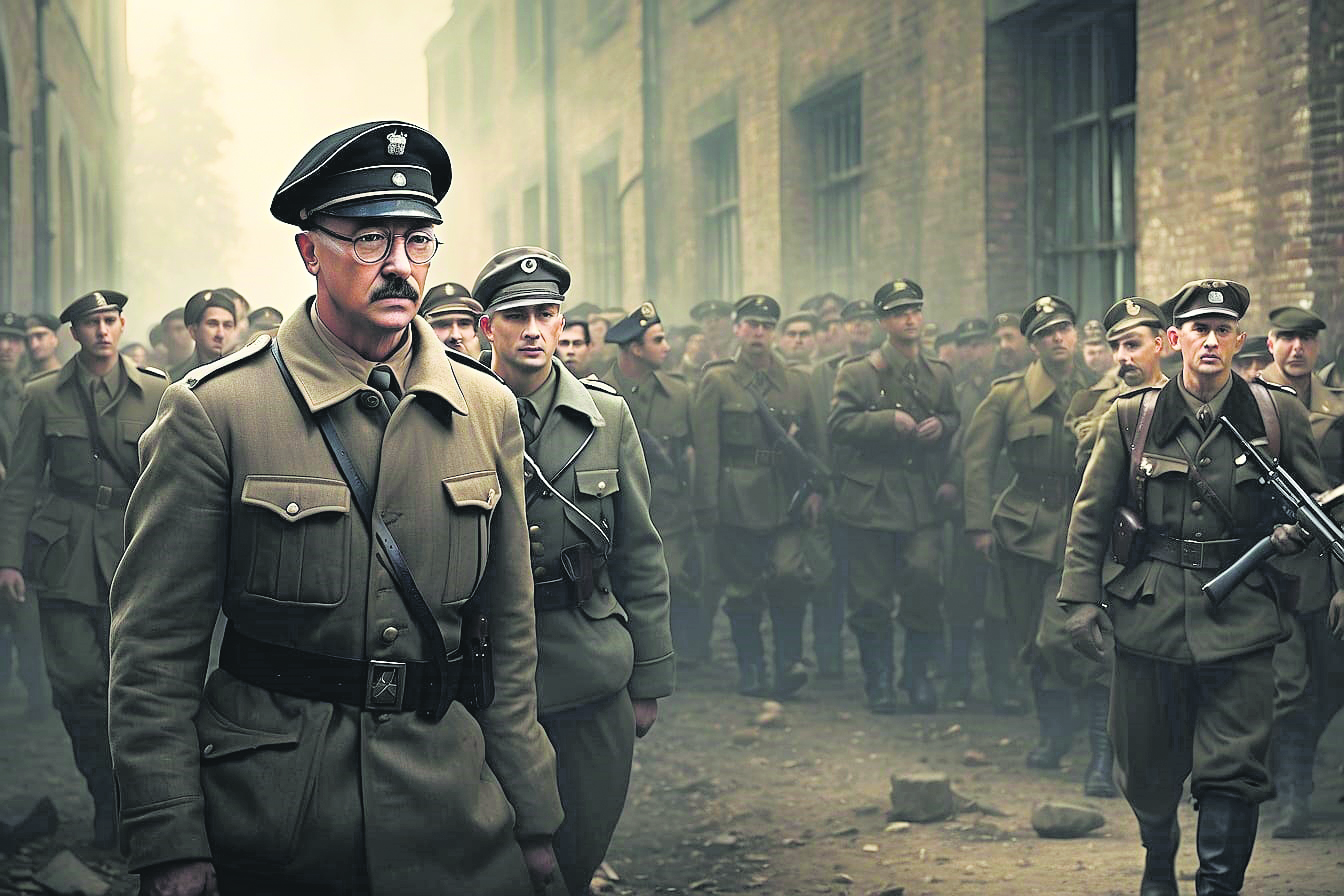Heinrich Himmler, A name that evokes a chilling sense of dread, an architect of terror whose shadow loomed large over Nazi Germany. As one of Adolf Hitler’s most trusted lieutenants, Himmler played a pivotal role in shaping the course of history during one of humanity’s darkest periods. His influence extended far beyond the confines of the Third Reich, leaving a legacy stained with the blood of millions. In this exploration, we delve into the life, ideology, and actions of Heinrich Himmler, attempting to unravel the enigma behind the man who orchestrated some of the most heinous crimes in modern history.
Born on October 7, 1900, in Munich, Germany, Heinrich Himmler grew up in a middle-class family environment. His father was a schoolteacher, instilling in young Heinrich a strict, disciplined upbringing. Himmler’s early years were unremarkable, marked by a conventional education and a brief stint in the military towards the end of World War I. However, it was in the aftermath of Germany’s defeat that Himmler’s life took a dramatic turn.
Like many disillusioned Germans, Himmler was drawn to the rising tide of nationalist fervor sweeping across the country. He became an early member of the Nazi Party, joining in 1923, shortly after Hitler’s failed Beer Hall Putsch. Himmler’s organizational skills and unwavering loyalty quickly caught the eye of the party leadership, particularly Hitler himself. By 1929, he was appointed as the head of the Schutzstaffel, or SS, a paramilitary organization initially tasked with providing security at Nazi rallies and events.
Under Himmler’s leadership, the SS rapidly transformed from a small bodyguard unit into a fearsome instrument of state repression. Himmler imbued the organization with his fanatical ideology, espousing the pseudo-scientific concept of Aryan racial superiority and the need for ruthless purification of the German nation. He saw the SS not just as a paramilitary force but as an elite caste, a vanguard of the Nazi revolution tasked with upholding the racial purity of the German people.
Himmler’s ambitions knew no bounds, and he soon expanded the SS’s remit to encompass a wide range of activities, including intelligence gathering, espionage, and even economic enterprises. But it was in the realm of racial policy that Himmler left his most indelible mark. As the architect of the Holocaust, Himmler oversaw the implementation of Hitler’s genocidal vision with cold, bureaucratic efficiency.
The SS’s role in the Holocaust was multifaceted, encompassing everything from the construction and operation of concentration camps to the mass murder of millions of Jews, Roma, Slavs, and other perceived enemies of the Nazi regime. Himmler personally visited several concentration camps, including Auschwitz, where he witnessed the horrors being perpetrated in the name of racial purity.
Despite his outward demeanor of bureaucratic detachment, Himmler was a true believer in the Nazi cause, viewing himself as the embodiment of Hitler’s will. He saw the Holocaust not just as a means of eliminating perceived threats to the German nation but as a sacred duty, a necessary sacrifice in the quest for Aryan domination. His speeches and writings are replete with references to the need for ruthless resolve in the face of perceived racial enemies, echoing the genocidal rhetoric of Hitler himself.
But Himmler’s reign of terror extended far beyond the borders of Nazi-occupied Europe. He also played a key role in the brutal suppression of dissent within Germany itself, overseeing the Gestapo, the secret police force tasked with rooting out internal enemies of the regime. Under his direction, thousands of political opponents, intellectuals, and other perceived threats to the Nazi state were rounded up, tortured, and executed without trial.
Himmler’s quest for total control extended even to matters of personal behavior and morality. He sought to impose his narrow, puritanical vision of society on the German people, promoting traditional family values while ruthlessly suppressing anything he deemed deviant or degenerate. Homosexuals, the disabled, and other marginalized groups were targeted for persecution and extermination, their very existence deemed a threat to the racial purity of the German nation.
Despite his central role in the Nazi regime, Himmler’s influence began to wane in the final years of World War II. As Germany’s military fortunes turned against them, Hitler increasingly marginalized Himmler in favor of more competent military leaders. In a desperate bid to salvage his own reputation, Himmler sought to negotiate a separate peace with the Allies, betraying Hitler in the process. However, his efforts were in vain, and with the collapse of the Third Reich in 1945, Himmler’s reign of terror came to an ignominious end.
In the aftermath of the war, Himmler attempted to evade capture by assuming a false identity, but he was eventually apprehended by British forces in May 1945. Rather than face justice for his crimes, Himmler chose to take his own life, swallowing a cyanide capsule while in British custody. His death marked the end of one of the darkest chapters in human history but left behind a legacy of hatred and destruction that continues to haunt the world to this day.In conclusion, Heinrich Himmler remains one of the most notorious figures of the 20th century, a man whose name is synonymous with evil and brutality. His role in the Nazi regime was central to the implementation of Hitler’s genocidal vision, and his fanatical devotion to the cause of Aryan supremacy knew no bounds. Despite his ultimate demise, the specter of Himmler looms large over the collective memory of humanity, a chilling reminder of the depths to which human depravity can sink when left unchecked.














